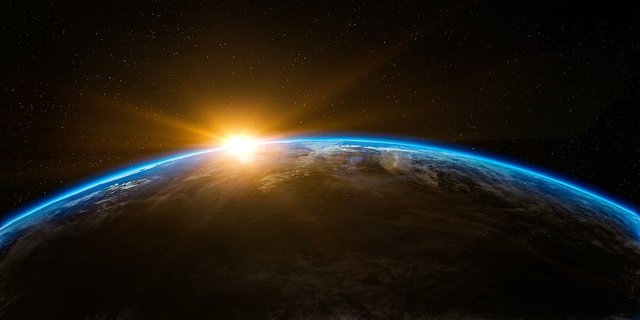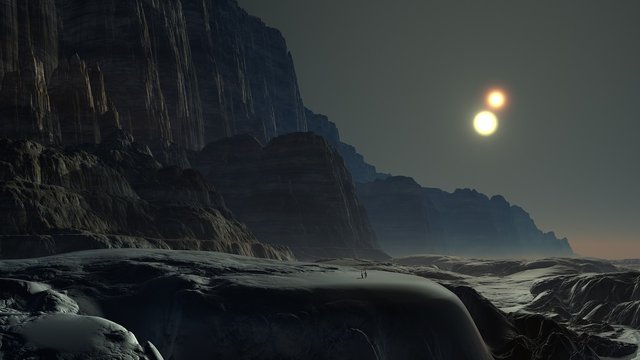What is time?

Is time merely the current configuration of the universe or is it something else? Is time an illusion? What role does entropy play?
Can all possible future states of the universe be predicted from previous states assuming everything is casual?

Is it possible to predict every possible state of the universe? Do we have a clockwork universe?
Is the universe a deterministic state machine or a non-deterministic state machine?
The universe started very orderly and is trending toward disorder. Is the universe a non-deterministic finite state machine or is it like a clock where it's deterministic?
References
- https://en.wikipedia.org/wiki/Finite-state_machine
- https://en.wikipedia.org/wiki/Clockwork_universe
- https://en.wikipedia.org/wiki/Digital_probabilistic_physics
- https://en.wikipedia.org/wiki/Abstract_and_concrete
- https://en.wikipedia.org/wiki/Abstract_and_concrete
- https://plato.stanford.edu/entries/abstract-objects/
Wow. This is some deep learning
No. To start, there is far more data needed than "matter" or "no matter", unless the only thing you are trying to model is gravity, and even then how much matter is vitally important.
Second, the universe doesn't actually consist of blocks. The planck length is the smallest length you can measure due to how light works, but that doesn't mean everything fits into integer multiples of it. And string theory suggests there are structures in the universe at even finer scales.
Thirdly, Quantum mechanics says that objects do not even have fully specified locations. They exist in a probabilistic manner, so there is no hard edge of "matter here" and "not matter there".
Fourth, it doesn't account for things which are not matter, like photons, which are extremely important.
Fifth, the mapping to translate an index into this string into a 3d coordinate is shifting. The universe is expanding, so the conversion to and from the byte stream is going to change moment to moment, and so the array is unworkable.
Sixth, moments aren't discrete timesteps either. It is continuous, so you can't just break it down to a series of simple steps you apply rules on and remain accurate.
Seventh, not only is time not discrete, its not even consistent. Relativity says time flows at different rates in different places and for different things.
Eight, the universe is not deterministic. I will grant that taking in the set of all previous states of the universe in their entirity does get around bell's inequality, it does mean that your model is non-local.
#Researched
Downvoting a post can decrease pending rewards and make it less visible. Common reasons:
Submit
What is time?
A dimension of the fabric of the universe.
Is time merely the current configuration of the universe or is it something else?
The configuration of the universe is dependent on time, time is not dependent on the configuration of the universe.
Is time an illusion?
No.
What role does entropy play?
In an open system entropy increases over time. (At least for now. If inflation ever disappears and the universe begins to contract for some reason e.g. unaccounted for dark matter/energy, then this will no longer necessarily hold true.) Time doesn't care what entropy does.
Can all possible future states of the universe be predicted from previous states assuming everything is casual?
No. You would never be able to:
Downvoting a post can decrease pending rewards and make it less visible. Common reasons:
Submit
To the question in your title, my Magic 8-Ball says:
Hi! I'm a bot, and this answer was posted automatically. Check this post out for more information.
Downvoting a post can decrease pending rewards and make it less visible. Common reasons:
Submit
I think the universe is psyched even beyond our imaginations, I think time isn't really a determining factor, I don't want to go Darwin or creation theory, but there is a big touch of something divine in the universe
Downvoting a post can decrease pending rewards and make it less visible. Common reasons:
Submit
but isn't darwin evo algo just another (extremely weak) creator. :P
Downvoting a post can decrease pending rewards and make it less visible. Common reasons:
Submit
Good questions. Easy answers. ONE.: time is change of entropy. Nothing less, nothing more. The other word is action. Cf. de Broglie's hidden thermodynamics. TWO.: Of course they can be all predicted, you simply need infinite resources of spacetime and mass-energy to do it. A bigger universe in hand to run your target universe all future states. Cf. Claude Shannon 1940es. THREE.: What base deterministic you ask about? If you ask about unitary probability - even so I reckon because the non-unitary probabilistics ( with non-binary code ) must be renderable / compressible to unitary ( where probabilities add up to 1 or 100% ).
Downvoting a post can decrease pending rewards and make it less visible. Common reasons:
Submit
Time is change of entropy? So if you create order you go backwards in time? Doesn't make sense to me...
You can predict everything? Please tell, how will you measure the current state at sub atomic level?
Downvoting a post can decrease pending rewards and make it less visible. Common reasons:
Submit
Entropy is not disorder. See.: http://www.science20.com/train_thought/blog/entropy_not_disorder-75081 -- The relation order/entropy, see.: http://www.informationphilosopher.com/solutions/scientists/layzer/ -- It is not even necessary to start with actually low entropy. See.: http://www.science20.com/the_hammock_physicist/immortal_unbounded_universe-134704 -- Current state at subatomic level - you can't currently, see.: https://en.wikipedia.org/wiki/Mutual_information -- BUT, information is indestructible... so you can unscramble any past state if you live long enough and grow to sufficient Shannon Scale. See.: https://en.wikipedia.org/wiki/Information_theory -- A thing does not need to be a 'who' to 'observe' and 'measure'. Measurement is ... interaction. Information is a verb, not noun :)
Downvoting a post can decrease pending rewards and make it less visible. Common reasons:
Submit
Too much pseudo-science in there for my liking!
Downvoting a post can decrease pending rewards and make it less visible. Common reasons:
Submit
I challenge you to point out a piece of such here.
Downvoting a post can decrease pending rewards and make it less visible. Common reasons:
Submit
I strongly disagree with the piece on entropy. True, it is not disorder per se but it is strongly related to it. I don't like the way that the author makes broad, sweeping statements like "The temperature and entropy of a system is only well defined for systems that are homogeneous and in thermal equilibrium." - which I would consider untrue. Also that he never really defines entropy, at least not beyond the "heat" explanation at the beginning, which is rather incomplete and/or irrelevant to his later discussions. That end summary of his is missing a LOT of substance.
As for "information is a noun" I disagree wholeheartedly. The action of measuring something can affect it, especially at the subatomic level. But that does not necessarily imply that all information is dynamic in nature. All matter and energy is dynamic, but not information. For example: my statement that "all matter and energy is dynamic" is immutable. It's a fixed piece of information, a noun.
Downvoting a post can decrease pending rewards and make it less visible. Common reasons:
Submit
Okay. I won't argue on ''Did you check Layzer?'' etc. Lets compact it - on your first paragraph will ask you.: ''Name at least one closed system.'' and on your second paragraph.: ''you do not measure streams? your noun-sentence occured whole and instantly?'' - name please a think which is not matter-form-process simultaneously? Information is a verb, not noun - exactly in-form ... forget about quantum collapses by seeing something :) it is not in the formulae. But how things limit each others' entropy is = measurement, interaction. And entropy is nothing but degrees of freedom.
Downvoting a post can decrease pending rewards and make it less visible. Common reasons:
Submit
This post has received a 0.94 % upvote from @booster thanks to: @dana-edwards.
Downvoting a post can decrease pending rewards and make it less visible. Common reasons:
Submit